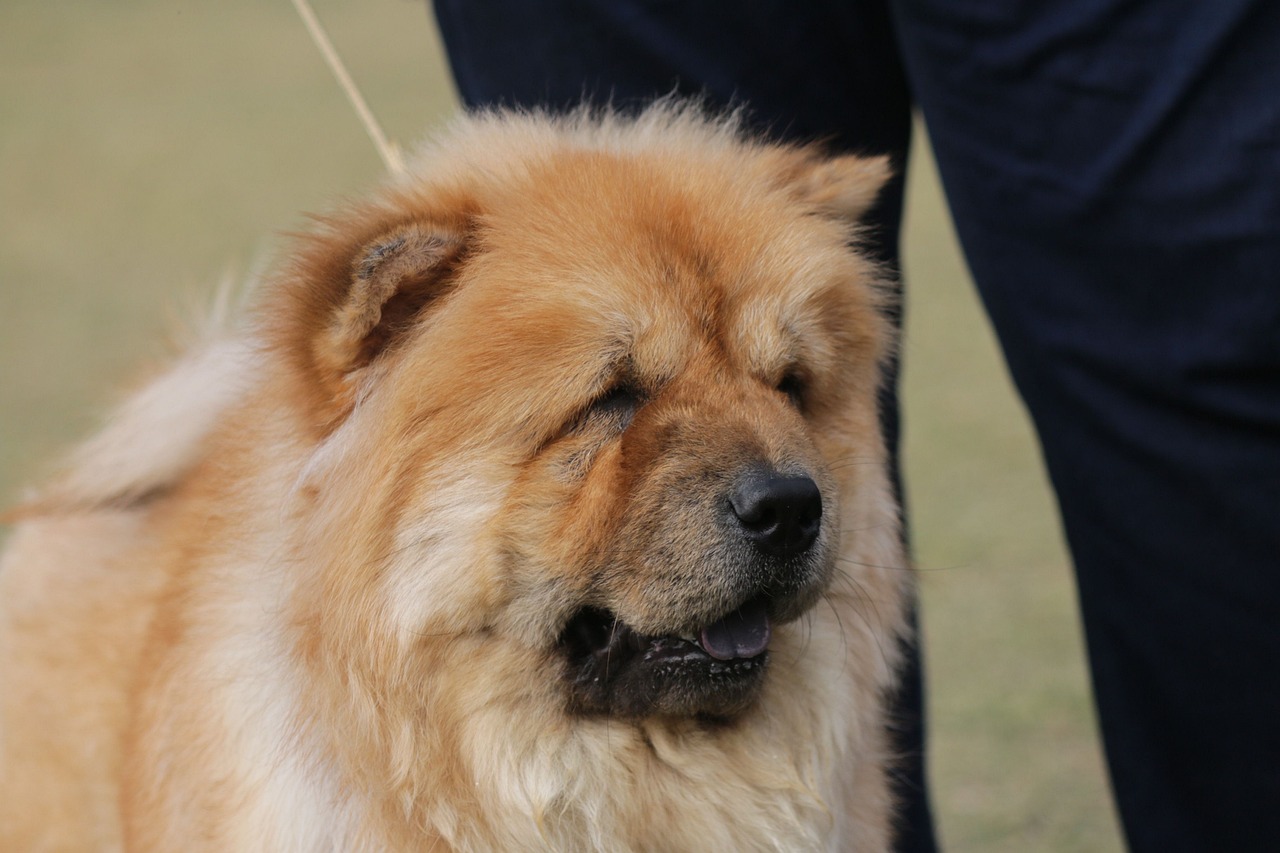Chow Chows, with their distinctive lion-like ruff and deep-set almond eyes, are one of the most easily recognizable breeds in the canine world. Originating from ancient China, they have served as noble companions for thousands of years, distinguished not only by their unique appearance but also by their aloof and dignified temperament. Known for their blue-black tongues and stilted gait, Chows combine the allure of a wild predator with the loyalty of a domesticated pet. Despite their somewhat reserved nature, they form strong attachments to their owners and can be very protective. Chow Chows exhibit several unusual habits that reflect their unique evolutionary background and cultural heritage. These habits, while sometimes puzzling, are deeply ingrained in the breed’s character and require understanding and patience from their owners. This article explores seven of these habits, offering insights into how they can be managed and appreciated by those who care for these majestic animals.

1. Reserved and Aloof Demeanor
Chow Chows are known for their reserved and aloof demeanor, particularly towards strangers. This trait can be traced back to their origins as guard dogs in imperial China, where they were valued for their discerning and independent nature. This aloofness is not a sign of hostility but rather an expression of their discerning temperament, making them cautious about whom they trust. Socializing a Chow Chow from a young age is crucial to ensuring that their natural wariness does not evolve into aggression. Exposure to diverse people and environments can help them become more adaptable and accepting of new experiences.
2. Self-Grooming Like Cats
Chow Chows often engage in behaviors more commonly associated with cats, including extensive self-grooming. This breed is fastidious about its cleanliness, frequently licking its coat much like a cat would. This habit helps them maintain their thick double coat, reducing the amount of external bathing needed but also necessitating regular checks for mats and tangles in their fur. While their self-grooming is beneficial, it is important for owners to ensure it does not lead to skin irritations or infections, particularly in the folds of their skin.
3. Strong Sense of Territory
Chows are naturally territorial animals, a trait that made them excellent watchdogs in ancient China. They often exhibit a strong sense of ownership over their space and can be protective of their home and family. It’s important for Chow owners to manage this trait through consistent training and socialization. Establishing clear boundaries and using positive reinforcement techniques can help mitigate any overprotective behaviors and ensure they remain calm and controlled, even in unfamiliar situations.
4. Standoffish with Other Dogs
Chow Chows can sometimes be standoffish or indifferent towards other dogs. This is not necessarily aggression but a preference for the company of humans over other canines. Early socialization with other dogs is key to preventing any potential aggression or anxiety. Puppy classes, regular walks in dog-friendly parks, and controlled playdates can encourage more sociable behavior and help Chows learn appropriate canine interactions.
5. Quiet Nature
Unlike many other breeds, Chow Chows are not typically barkers. They tend to be quite quiet, often using body language rather than vocalizations to communicate. Owners should pay attention to their Chow’s body cues to understand their needs and emotions, as their quiet nature means they might not alert you to issues as vocally as other breeds would.
6. Prefers Cool Climates
Originally from the cold northern regions of China, Chows prefer cooler climates and may seek out the coolest spots in the house. During warmer weather, it’s important to provide them with access to shade and water, and to limit their exercise during the hottest parts of the day. Owners might also consider using cooling mats or vests to help their Chow Chows stay comfortable during summer months.
7. Sensitive to Handling
Chow Chows may show sensitivity to being handled, particularly if the handling is unfamiliar or intrusive. Respect for their personal space and a gentle approach to grooming or veterinary care can prevent discomfort or stress. Building trust through positive handling experiences from a young age can help a Chow become more receptive to being touched and cared for.
Chow Chows are a breed rich in history and unique characteristics. Their unusual habits reflect their cultural heritage and evolutionary traits, providing depth to their personality that can be deeply rewarding to understand and manage effectively. By respecting their preferences, providing appropriate socialization, and ensuring their comfort, owners can enjoy a harmonious relationship with these dignified and majestic animals.
 Toledo, United States.
Toledo, United States.